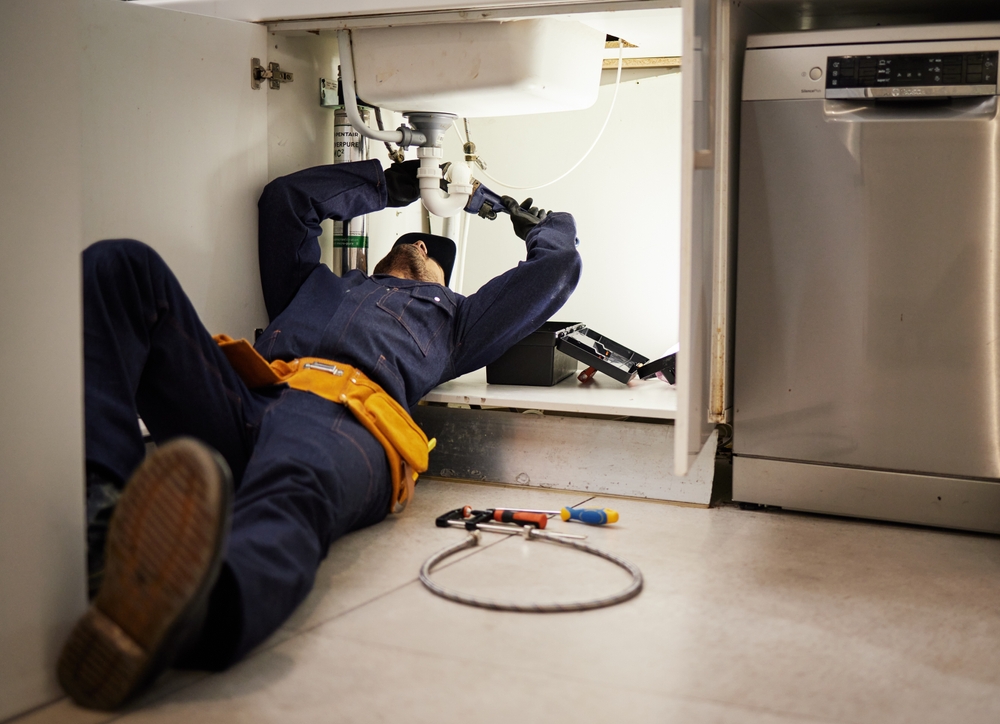
Why Home Repairs Can Lead to Lawsuits Between Neighbors
Home repairs are a normal part of owning property, but they can sometimes cause friction between neighbors. Repair work that crosses property lines, changes drainage, or affects shared spaces can quickly escalate. When communication breaks down, these disputes can turn into legal battles. Lawsuits between neighbors over home repairs are surprisingly common and can be costly and stressful for everyone involved. Understanding the most common triggers can help you avoid trouble and keep the peace on your block.
1. Fence and Boundary Disputes
Few things spark lawsuits between neighbors faster than disagreements over fences and property lines. Installing a new fence or repairing an old one often leads to arguments about where the true boundary lies. If you accidentally build on your neighbor’s land, even by a few inches, you could face a lawsuit demanding removal or compensation.
Before starting any fence repair or installation, always check your property survey and local regulations. It’s wise to talk with your neighbor about your plans, share details, and get agreements in writing. This simple step can save you from costly legal headaches down the line.
2. Tree Damage and Overhanging Branches
Trees are a common source of neighbor lawsuits, especially when home repairs involve trimming or removing them. If your tree’s branches hang over the property line, your neighbor may trim them—but if your repair work causes the tree to die or fall, you could be liable for damages. Similarly, roots that damage a neighbor’s driveway or foundation can lead to costly claims.
Always consult with your neighbor before major tree repairs, and consider hiring a certified arborist. Knowing your local laws about trees and property lines can help prevent disputes from escalating into lawsuits.
3. Water Drainage Changes
Repairing or upgrading gutters, grading, or drainage systems can unintentionally redirect water onto your neighbor’s property. This can lead to flooded basements, soggy yards, or even structural damage—prime reasons for lawsuits between neighbors. Even small changes to landscaping or paving can have surprising effects on drainage.
Before making repairs, study how water flows on your property and talk to your neighbor if changes might affect them. Many cities have rules about altering drainage, so check local ordinances to avoid legal trouble.
4. Shared Driveways and Easements
Shared driveways and easements are legal arrangements that allow neighbors to use part of each other’s property. Repairs or improvements in these areas can easily spark lawsuits between neighbors, especially if one party blocks access or changes the surface without agreement. Even simple maintenance, like repaving or sealing, can cause tension if done without proper notice.
Always review your property deed and any shared agreements before starting work. Clear communication and written consent from all parties involved can help prevent disputes that end up in court.
5. Noise and Nuisance from Construction
Home repairs often mean noise, dust, and disruption. If your project drags on, starts too early, or creates excessive mess, your neighbor might file a nuisance lawsuit. This is especially true for repairs involving power tools, demolition, or heavy equipment. Lawsuits between neighbors over noise are more common in densely populated areas or where local noise ordinances are strict.
Schedule repairs during reasonable hours and keep your neighbor informed about what to expect. Taking steps to minimize dust, debris, and noise can go a long way toward keeping the peace—and avoiding court.
6. Exterior Painting and Chemical Runoff
Painting, staining, or sealing exterior surfaces can cause chemical runoff onto a neighbor’s property. Paint splatters, overspray, or drips can damage cars, landscaping, or outdoor furniture, leading to lawsuits between neighbors for property damage. Some paints and sealants contain chemicals that may harm plants or pets.
Use tarps and barriers, and alert your neighbor before starting exterior work. If you hire a contractor, make sure they’re insured and responsible for cleanup. Good preparation can prevent accidental damage and potential legal action.
7. Roof Repairs and Falling Debris
Roof repairs are necessary but risky, especially if debris, nails, or shingles fall onto your neighbor’s yard. Even a small amount of debris can damage gardens, cars, or outdoor spaces, resulting in lawsuits between neighbors for cleanup or replacement costs.
Always use proper safety measures and containment when repairing your roof. Let your neighbor know when work will take place, and inspect their property afterward for stray materials. Many roofing companies carry liability insurance, but it’s still wise to double-check before work begins.
How to Avoid Lawsuits Between Neighbors Over Home Repairs
Most lawsuits between neighbors over home repairs start with poor communication or misunderstandings. Taking time to talk things through before starting repairs can make a huge difference. Documenting agreements, hiring reputable contractors, and following local laws are practical steps that protect both sides.
With a bit of planning and respect, you can keep your repairs on track and your neighborly relationships intact. Have you ever had a home repair lead to a dispute? Share your story or tips in the comments below!
What to Read Next…
- 10 Simple Home Repairs That Can Become Lawsuits Overnight
- 7 Helpful Things Your Neighbors Do That Could Get You Sued
- 7 Times DIY Plumbing Turned Into a Homeowner Lawsuit
- Can a Broken Fence Really Get You Sued by a Neighbor? Here’s What We Found
- Neighbors Could Sue Over These 9 Popular Backyard Add Ons
The post 7 Home Repairs That Lead to Lawsuits Between Neighbors appeared first on Clever Dude Personal Finance & Money.







